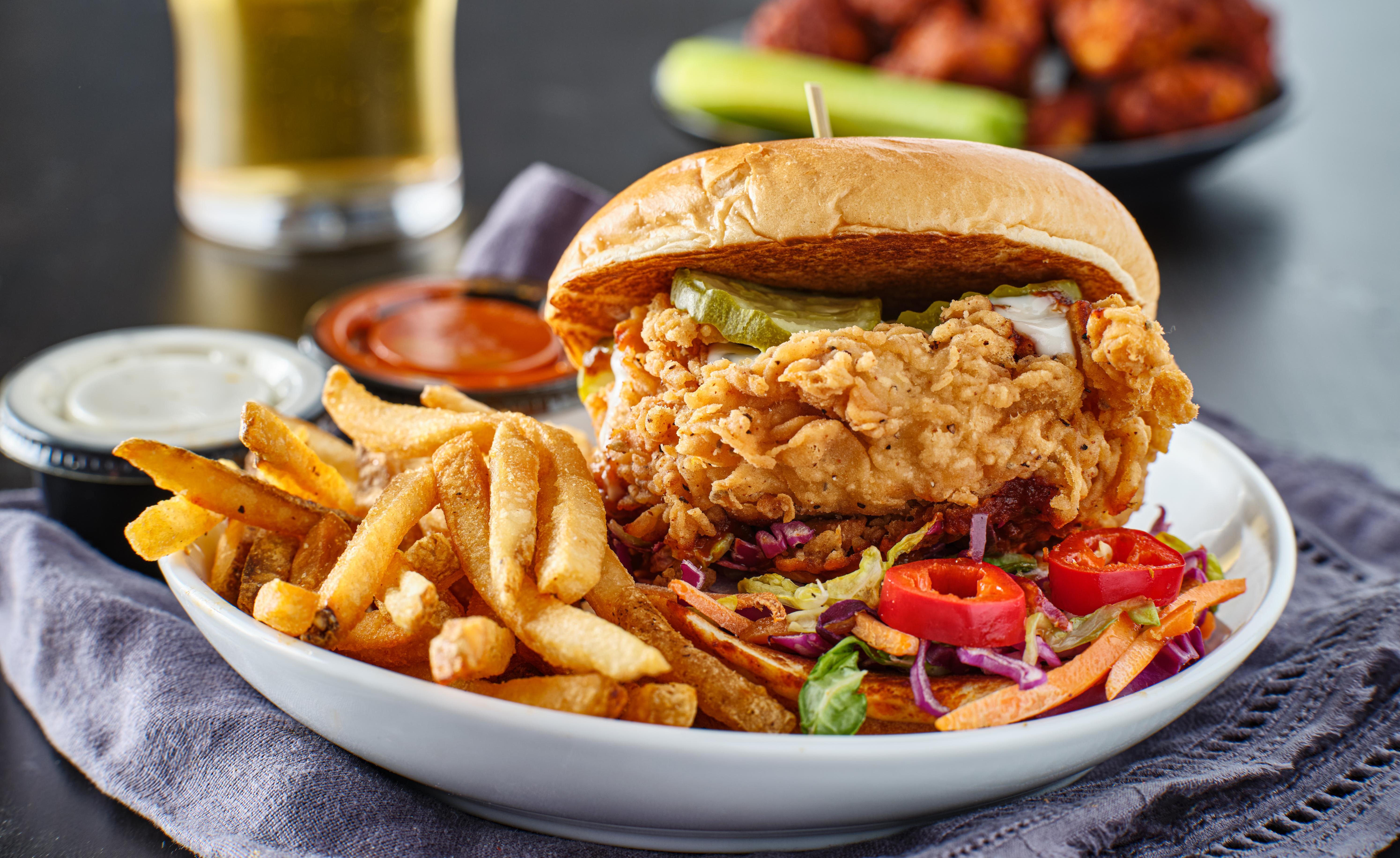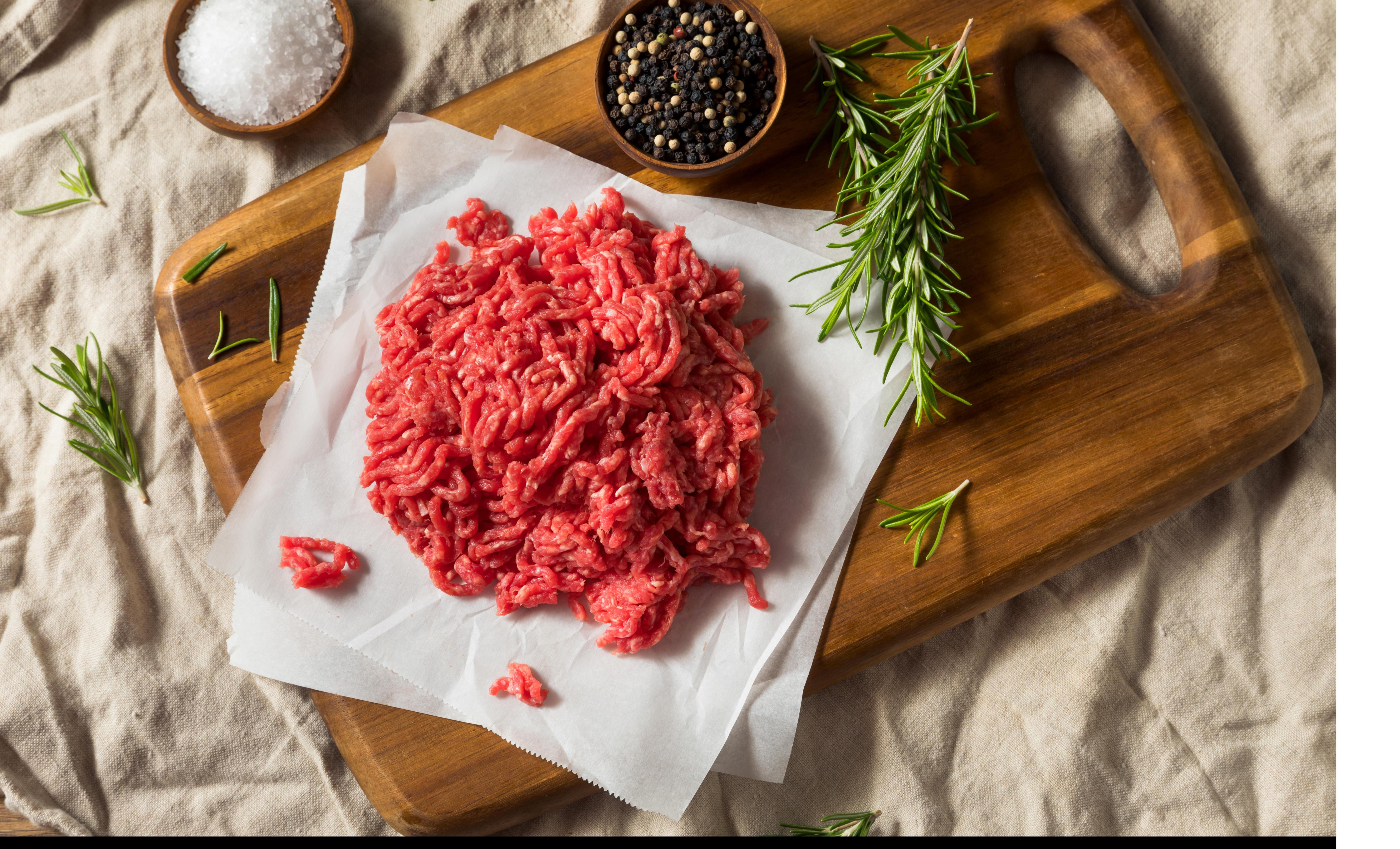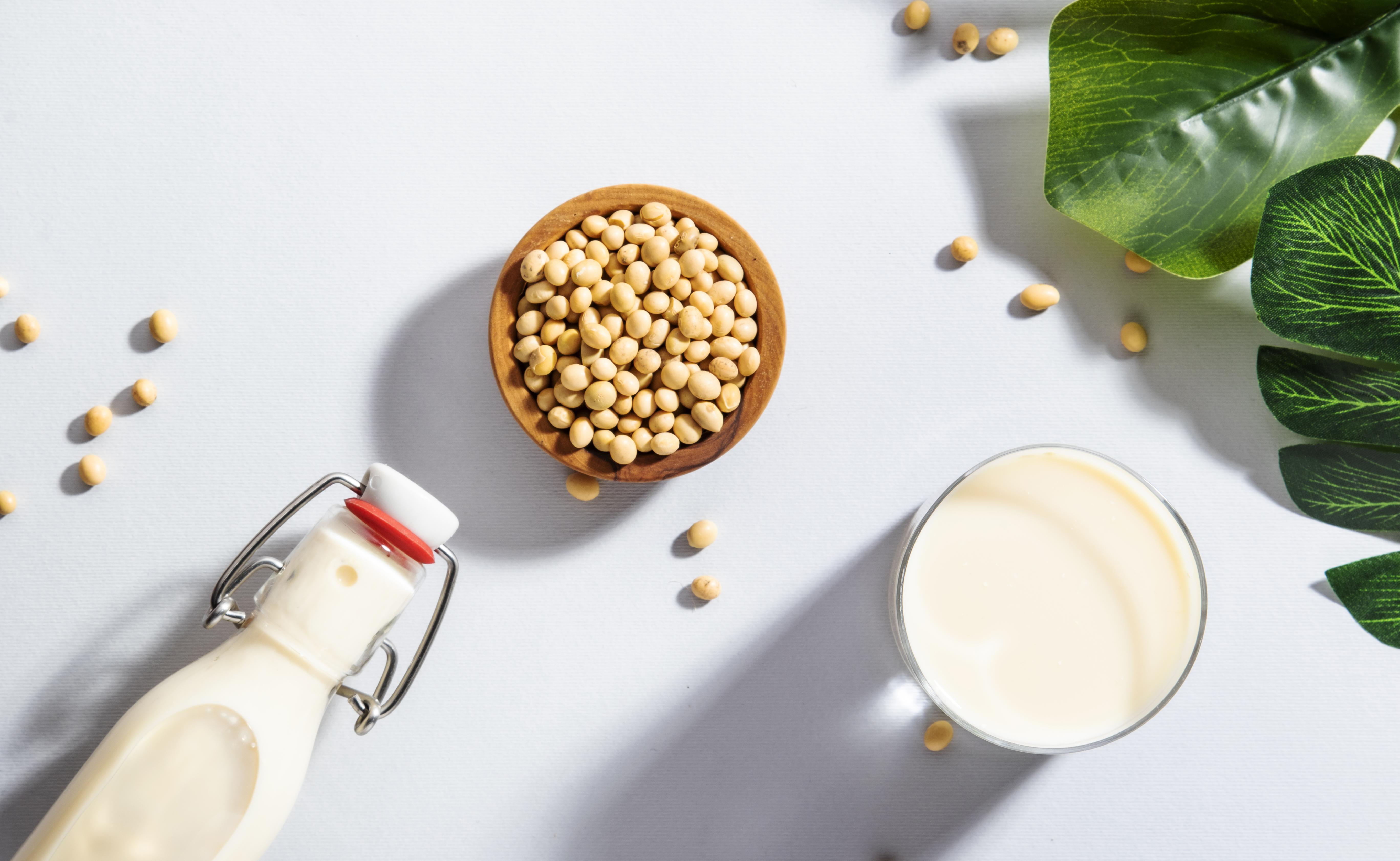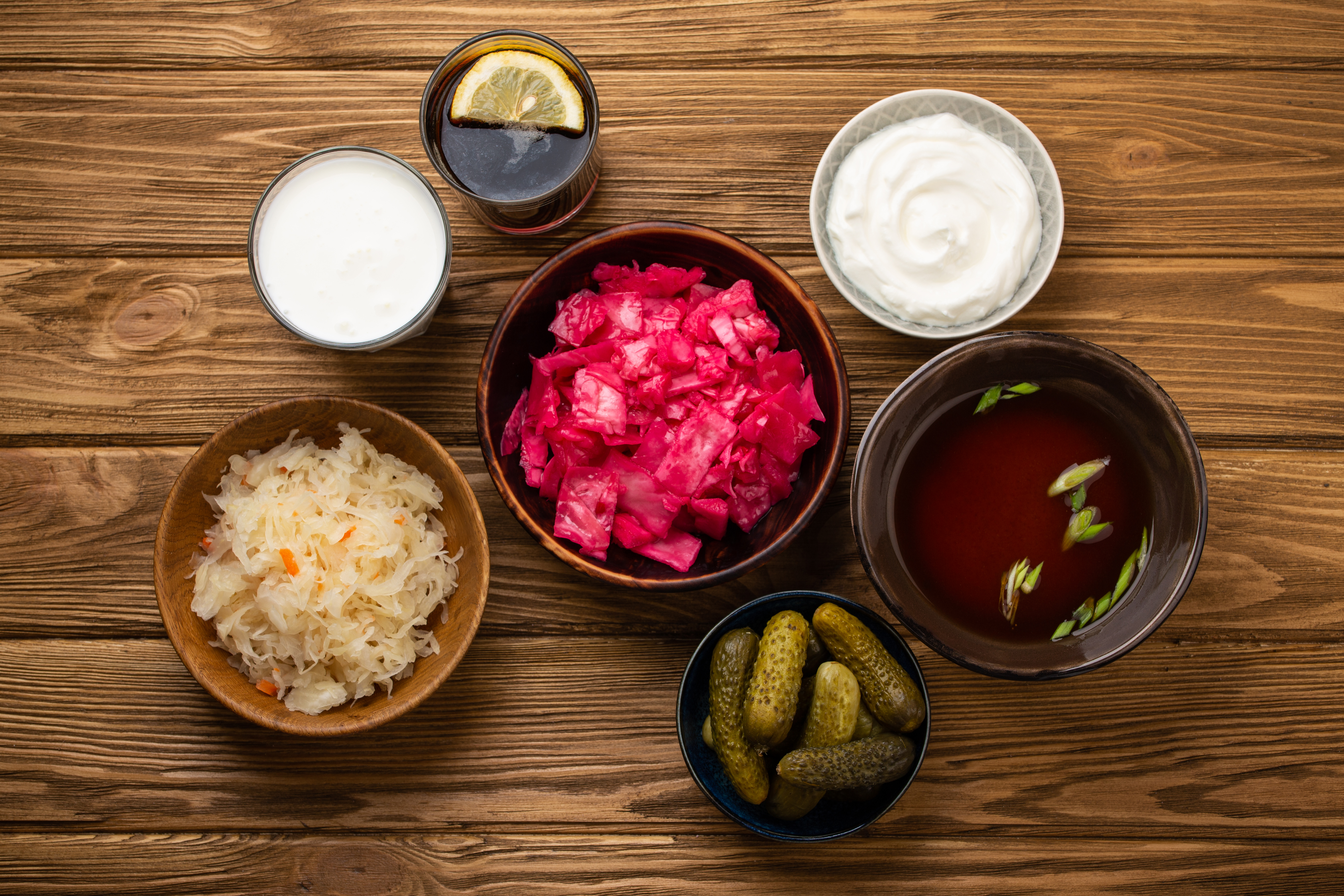Unexpected Foods That Can Wreck Your Digestive System
In the world of food, flavor often steals the spotlight—but behind the scenes, your gut is calling the shots. Dubbed the “second brain,” the gut is more than just a digestive workhorse; it’s a powerful command center influencing everything from immunity to mood. And while we savor culinary pleasures, we may be unknowingly feeding a different beast—one that disrupts the delicate harmony of our gut microbiome. That’s why we’ve expanded our list to 24 surprising gut-disrupting foods—to uncover the hidden threats that may be sabotaging your well-being one bite at a time. Some of these culprits wear a healthy disguise, while others are everyday staples flying under the radar. This eye-opening guide dives deep into the foods that could be quietly throwing your gut off balance. Armed with this knowledge, you’ll be better equipped to protect your inner ecosystem—and make smarter, gut-friendly choices without sacrificing the joy of eating.
1. The Sugar Trap: Sweet but Sinister

Sugar, in its many forms, is a ubiquitous presence in our diets, often hidden in foods we least suspect. While its sweet allure is undeniable, sugar is a primary disruptor of gut health. Excessive consumption can lead to an imbalance of gut flora, promoting the growth of harmful bacteria over beneficial ones. This imbalance, known as dysbiosis, can trigger inflammation and compromise the gut barrier, leading to a cascade of health issues. Moreover, high sugar intake can impair the gut-brain axis, influencing mood and cognitive function. Understanding the pervasive nature of sugar and its hidden presence in processed foods is crucial. By reducing sugar intake and opting for natural sweeteners, we can begin to restore balance and safeguard our gut health.
2. Artificial Sweeteners: The Deceptive Replacement

In an attempt to reduce sugar consumption, many turn to artificial sweeteners as a seemingly healthier alternative. However, these sugar substitutes can be equally, if not more, detrimental to gut health. Research reveals that artificial sweeteners can alter gut microbiota composition, reducing the diversity of beneficial bacteria. This alteration can lead to glucose intolerance, a precursor to metabolic disorders. Furthermore, the chemical composition of these sweeteners can irritate the gut lining, exacerbating digestive issues. As we strive for healthier choices, it is imperative to scrutinize the long-term impacts of artificial sweeteners and consider natural alternatives like stevia or monk fruit, which offer sweetness without compromising gut integrity.
3. Gluten: The Controversial Culprit

Gluten, a protein found in wheat, barley, and rye, has become a contentious topic in the realm of gut health. For individuals with celiac disease, gluten triggers an autoimmune response that damages the small intestine. However, even those without celiac disease may experience gluten sensitivity, leading to symptoms such as bloating, diarrhea, and abdominal pain. The mechanism behind gluten's impact on the gut involves increased intestinal permeability, often referred to as "leaky gut," which allows toxins and undigested food particles to enter the bloodstream. This can ignite systemic inflammation and contribute to various health issues. While gluten is not inherently harmful to everyone, being mindful of its effects and observing how it interacts with your body can guide dietary decisions that promote gut harmony.
4. Dairy Dilemmas: Lactose and Beyond

Dairy products, cherished for their calcium and vitamin D content, can be problematic for many due to lactose intolerance or a milk protein allergy. Lactose intolerance arises from a deficiency in lactase, the enzyme needed to digest lactose, the sugar in milk. This can lead to uncomfortable symptoms such as gas, bloating, and diarrhea. Beyond lactose, casein and whey proteins in dairy can also provoke inflammatory responses in sensitive individuals. The fermentation process of certain dairy products, however, can reduce lactose content and introduce beneficial probiotics, offering a more gut-friendly option. Navigating the dairy dilemma involves recognizing individual tolerance levels and opting for fermented dairy or plant-based alternatives to maintain gut balance.
5. The Fat Paradox: Trans Fats and Gut Health

Fats are essential to our diet, but not all fats are created equal. Trans fats, often found in processed and fried foods, are notorious for their adverse health effects, including their impact on the gut. These unhealthy fats can promote inflammation and disrupt the balance of gut microbiota. Studies suggest that trans fats can decrease the abundance of beneficial bacteria, such as Bifidobacteria, while encouraging the growth of pathogenic strains. This imbalance can compromise gut barrier function and contribute to chronic inflammatory diseases. Embracing healthy fats, like those found in avocados, nuts, and olive oil, can support gut health by fostering a diverse and thriving microbiome.
6. Processed Foods: The Hidden Dangers

Processed foods have become a staple in modern diets due to their convenience and palatability. However, the additives, preservatives, and artificial ingredients commonly found in these foods can wreak havoc on gut health. Emulsifiers, for instance, are added to improve texture and shelf life but can disrupt the mucus layer of the gut, leading to inflammation and increased permeability. Additionally, high levels of refined carbohydrates and unhealthy fats in processed foods can alter gut microbiota composition, favoring the growth of harmful bacteria. Reducing reliance on processed foods and focusing on whole, minimally processed ingredients can help restore gut balance and promote overall well-being.
7. Red Meat: A Double-Edged Sword

Red meat is a rich source of protein and essential nutrients like iron and zinc, yet its consumption is linked to gut health concerns. High intake of red meat, particularly processed varieties, can lead to the production of harmful compounds like trimethylamine N-oxide (TMAO) during digestion. TMAO is associated with inflammation and an increased risk of cardiovascular diseases. Furthermore, red meat can alter gut microbiota composition, reducing beneficial bacteria and promoting the growth of pathogenic strains. Moderation and choosing lean cuts, along with incorporating plant-based proteins, can mitigate these risks and support a healthier gut environment.
8. Nightshade Vegetables: The Unseen Agitators

Nightshade vegetables, including tomatoes, potatoes, peppers, and eggplants, are staples in many diets but can pose problems for those with sensitivities. These vegetables contain alkaloids, compounds that can trigger inflammation in susceptible individuals. Solanine, a type of alkaloid, is particularly noted for its potential to irritate the gut lining and exacerbate inflammatory conditions. While nightshades are rich in nutrients and antioxidants, understanding individual tolerance levels is key. For those experiencing adverse symptoms, reducing or eliminating nightshades from the diet and exploring alternative vegetables can help maintain gut health and reduce inflammatory responses.
9. Alcohol: The Social Saboteur

Alcohol, a common social lubricant, can have detrimental effects on gut health when consumed in excess. It can disrupt the balance of gut microbiota, reduce the diversity of beneficial bacteria, and increase intestinal permeability, leading to a condition known as "leaky gut." This can allow toxins and pathogens to enter the bloodstream, triggering systemic inflammation. Additionally, alcohol can impair the gut's ability to absorb nutrients, further compromising health. Moderation is crucial, and opting for gut-friendly choices like red wine, which contains polyphenols with potential prebiotic effects, can help mitigate the negative impacts of alcohol on gut health.
10. Soy: The Controversial Legume

Soy, a popular plant-based protein source, is lauded for its health benefits yet remains controversial due to its potential impact on gut health. Soy contains compounds called phytoestrogens, which can mimic estrogen in the body and affect hormonal balance. Additionally, soy is often genetically modified and heavily processed, which can introduce harmful additives and reduce its nutritional value. For some individuals, soy can trigger digestive issues and allergic reactions. Fermented soy products, such as tempeh and miso, offer a more gut-friendly option, as the fermentation process enhances nutrient availability and introduces beneficial probiotics.
11. High-FODMAP Foods: The Hidden Triggers

FODMAPs (fermentable oligosaccharides, disaccharides, monosaccharides, and polyols) are a group of carbohydrates that can trigger digestive distress in susceptible individuals. Foods high in FODMAPs, such as certain fruits, vegetables, and grains, can ferment in the gut, leading to gas, bloating, and discomfort. For those with irritable bowel syndrome (IBS) or other gut sensitivities, a low-FODMAP diet can offer relief by reducing the intake of these fermentable carbohydrates. Identifying and managing high-FODMAP foods requires careful dietary planning and may involve working with a healthcare professional to ensure nutritional adequacy while minimizing gut symptoms.
12. Caffeine: The Double-Edged Stimulant

Caffeine, found in coffee, tea, and energy drinks, is a beloved stimulant that can also pose challenges to gut health. While moderate caffeine consumption can enhance alertness and mood, excessive intake can irritate the gut lining and exacerbate conditions like acid reflux and gastritis. Caffeine can also increase intestinal motility, leading to diarrhea in sensitive individuals. Balancing caffeine consumption and recognizing individual tolerance levels is essential for maintaining gut health. Opting for lower-caffeine alternatives, such as green tea or herbal infusions, can provide a gentler boost without compromising gut integrity.
13. Spicy Foods: The Fiery Agitators

Spicy foods, adored for their bold flavors and heat, can be problematic for those with sensitive digestive systems. Capsaicin, the compound responsible for the heat in chili peppers, can irritate the gut lining and exacerbate conditions like acid reflux and irritable bowel syndrome (IBS). While spicy foods offer health benefits, such as boosting metabolism and providing antioxidants, moderation is key for those prone to digestive discomfort. Exploring milder spices and gradually increasing tolerance can allow individuals to enjoy the flavors they love without compromising gut health.
14. Fermented Foods: Friends or Foes

Fermented foods, praised for their probiotic content, play a dual role in gut health. While they can introduce beneficial bacteria that support a healthy microbiome, they can also cause issues for those with histamine intolerance or certain gut conditions. Fermented foods like sauerkraut, kimchi, and yogurt can lead to histamine accumulation, triggering symptoms such as headaches, hives, and digestive discomfort. For those with sensitivities, careful selection and moderation of fermented foods are crucial. Understanding individual tolerance and incorporating a variety of probiotic sources can help harness the benefits of fermentation while minimizing potential drawbacks.
15. Seed Oils: The Oxidative Offenders

Seed oils like soybean, corn, canola, and sunflower oil are ubiquitous in processed foods and restaurant meals. While once touted as heart-healthy, these oils are often high in omega-6 fatty acids, which, when consumed in excess, can fuel inflammation in the body—including the gut. Additionally, many of these oils are chemically extracted and highly processed, leading to oxidative stress and potential disruptions in the gut lining. Replacing seed oils with healthier fats like olive oil, avocado oil, or grass-fed butter can reduce inflammation and help maintain a balanced microbiome.
16. Emulsifiers: The Texture Trouble-Makers

Used to blend ingredients in products like ice cream, salad dressing, and peanut butter, emulsifiers such as polysorbate 80 and carboxymethylcellulose have been shown to negatively alter gut microbiota. These additives may thin the intestinal mucus layer and increase intestinal permeability—a hallmark of “leaky gut.” While not harmful in small doses for everyone, chronic consumption can provoke inflammation and immune dysfunction in sensitive individuals. Opting for whole, additive-free versions of packaged foods is a simple way to sidestep this hidden threat.
17. Deli Meats and Preserved Proteins: The Nitrate Concern

Cold cuts, bacon, jerky, and other preserved meats are convenient and tasty but come with a cost. Many are loaded with nitrates, nitrites, and other preservatives that can harm the gut lining and encourage dysbiosis (an imbalance in gut bacteria). They may also promote the formation of carcinogenic compounds in the colon. Choosing fresh, minimally processed meats—or plant-based alternatives—can reduce your exposure to gut-disrupting additives and improve long-term digestive health.
18. Flavored Waters and Sports Drinks: Hidden Gut Irritants

Marketed as hydrating or performance-boosting, many flavored waters and sports drinks contain artificial sweeteners, colorings, and preservatives that can quietly disturb the gut ecosystem. Ingredients like sucralose or acesulfame potassium have been linked to microbial changes and insulin resistance. Even “natural” drinks often contain citric acid or synthetic flavors that irritate sensitive stomachs. Stick with filtered water, coconut water, or homemade electrolyte drinks for hydration that doesn’t come at your gut’s expense.
19. Moldy or Poor-Quality Coffee: The Mycotoxin Risk

Coffee itself isn’t the enemy—in fact, high-quality coffee contains polyphenols that may benefit the microbiome. However, poorly stored or low-grade coffee beans can harbor mold and mycotoxins, which can wreak havoc on the gut lining and overall immune function. People with gut sensitivities or autoimmune conditions may be especially vulnerable. Choosing organic, mold-tested coffee brands can help minimize this risk while preserving your morning ritual.
20. Protein Bars and Meal Replacements: The Faux Health Food

Often marketed as health-conscious choices, many protein bars and shakes are packed with artificial flavors, sugar alcohols, emulsifiers, and processed soy. These ingredients can bloat, irritate, and disrupt gut flora—especially in sensitive individuals. While convenient, these products frequently sacrifice gut health for shelf stability and flavor. Look for clean, whole-food-based options with minimal ingredients—or better yet, make your own bars at home.
21. Excessive Raw Vegetables: A Fiber Overload

Raw veggies are healthy, but for those with compromised digestion or conditions like IBS, consuming too many raw cruciferous vegetables (like broccoli, cauliflower, or cabbage) can lead to gas, bloating, and discomfort. The high fiber content and natural plant compounds (like goitrogens and FODMAPs) can overwhelm a struggling digestive system. Lightly steaming or roasting these vegetables makes them easier to digest while still preserving nutrients.
22. Overuse of Antibacterial Mouthwash: A Surprising Gut Disruptor

The gut microbiome doesn’t start in your stomach—it begins in your mouth. Overusing antiseptic mouthwashes like chlorhexidine can kill not only bad oral bacteria but also beneficial ones that support nitric oxide production and downstream digestion. This microbial imbalance can affect the entire gut ecosystem. Consider switching to alcohol-free or microbiome-friendly oral care products, and use mouthwash in moderation.
23. Excess Snacking: Disrupting the Migrating Motor Complex

Constant snacking, even on healthy foods, prevents your gut from completing one of its key cleanup functions—the migrating motor complex (MMC). This wave-like motion clears undigested food and bacteria between meals. Without enough time between eating, food can ferment, causing bloating, SIBO (small intestinal bacterial overgrowth), and indigestion. Spacing meals at least 3–4 hours apart (or practicing intermittent fasting) can improve motility and gut health.
24. Tap Water Contaminants: Invisible Gut Stressors

While drinking water is essential for digestion, not all tap water is created equal. Depending on your location, it may contain chlorine, fluoride, heavy metals, and trace pharmaceuticals—all of which can harm gut bacteria over time. Using a quality water filter helps eliminate these contaminants and supports a healthier gut microbiome. You don’t need fancy bottled water—just cleaner hydration to keep your gut thriving.
Navigating the Culinary Landscape for Gut Health

As we conclude this exploration of culinary villains, it becomes evident that maintaining gut harmony requires a nuanced understanding of how different foods interact with our unique biology. Each individual’s gut microbiome is distinct, shaped by genetics, lifestyle, and dietary choices. By recognizing the potential threats posed by certain foods, we can make informed decisions that prioritize gut health. Embracing a diverse and balanced diet, rich in whole foods and mindful of individual sensitivities, can foster a thriving microbiome and enhance overall well-being. As we navigate the culinary landscape, let us be guided by knowledge and intuition, cultivating a relationship with food that supports both pleasure and health.
